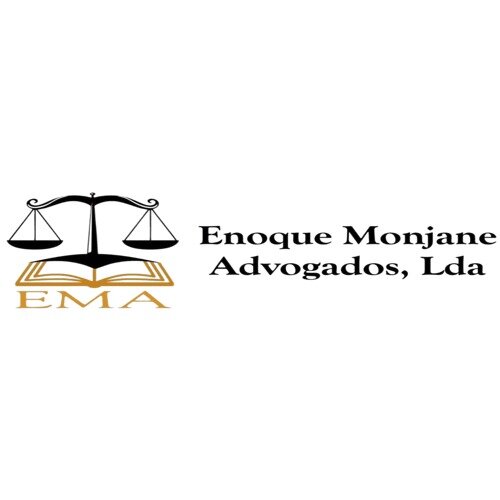Best Admiralty & Maritime Lawyers in Maputo
Share your needs with us, get contacted by law firms.
Free. Takes 2 min.
List of the best lawyers in Maputo, Mozambique
About Admiralty & Maritime Law in Maputo, Mozambique
Admiralty & Maritime Law, commonly referred to as shipping law, governs legal matters related to nautical issues, maritime navigation, waters, shipping, and transportation by sea. In Maputo, Mozambique's largest city and main port, this field of law is critical due to the city’s strategic location on the Indian Ocean. The maritime industry in Maputo facilitates significant fishing, trade, and oil and gas activities, making legal expertise in this area vital for the local economy and international business.
Why You May Need a Lawyer
There are numerous scenarios in which an individual or business might need legal assistance in the arena of Admiralty & Maritime Law. Here are some common cases:
- Shipping Disputes: Conflicts often arise between shipping companies and users over cargo damage, delays, or contractual disagreements.
- Environmental Issues: Incidents like oil spills or illegal waste disposal can have serious legal repercussions and require swift legal action.
- Personal Injury: Seafarers and maritime workers injured while performing their duties may need legal help to seek compensation.
- Regulation Compliance: Adherence to international and local maritime regulations can be complex and requires expert interpretation.
- Maritime Liens and Mortgages: Issues relating to ship financing and ownership often necessitate specialized legal services.
Local Laws Overview
Maputo, operating under Mozambican maritime legislation, incorporates international conventions and national regulations. Key components include:
- The Merchant Shipping Act: Regulates all commercial shipping activities including vessel registration and safety standards.
- Environmental Protection Law: Ensures protection of marine environments and adherence to environmental compliance standards.
- Labour Laws for Maritime Workers: Covers employment conditions, rights, and safety standards for maritime workers.
- International Conventions: Mozambique adheres to several international maritime conventions such as SOLAS (Safety of Life at Sea) and MARPOL (International Convention for the Prevention of Pollution from Ships).
Frequently Asked Questions
What is Admiralty & Maritime Law?
Admiralty & Maritime Law is a specialized area of law that deals with issues related to marine navigation, shipping, and maritime commerce. It covers a wide range of subjects including maritime contracts, torts, injuries, and offenses.
What are the common legal issues in shipping?
Common legal issues in shipping include cargo claims, maritime liens, personal injury claims, pollution, vessel registration, and compliance with international maritime regulations.
Who enforces maritime laws in Mozambique?
The enforcement of maritime laws in Mozambique is carried out by several bodies, including the Maritime Administration, the Navy for coastal policing, and the Ports and Railways Company (CFM) for port operations.
Can I file a claim for damages if my cargo is lost or damaged?
Yes, you can file a claim for damages arising from lost or damaged cargo. Maritime law provides the framework for recovering losses through compensation.
What is the relevance of international maritime conventions in Mozambique?
Mozambique is a signatory to various international maritime conventions which set standards for safety, navigation, pollution prevention, and labor. These conventions are integrated into national law and are relevant in the legal adjudication of maritime matters.
How are marine environmental violations handled?
Marine environmental violations are subject to penalties, fines, and corrective measures under both local and international regulations. Legal proceedings can involve prosecution and remediation obligations.
What should I do if I get injured while working on a vessel?
If you are injured while working on a vessel, you should seek immediate medical attention, report the incident to your employer, and consult a maritime lawyer to understand your rights and potential compensation claims.
Are foreign ships subject to Mozambican maritime law?
Yes, foreign ships in Mozambican waters are subject to local maritime laws and regulations governing navigation, safety, and environmental compliance.
What is a maritime lien?
A maritime lien is a claim against a vessel for debts related to the vessel, such as claims for unpaid wages, repairs, or damages. It allows claimants to seek security in the vessel itself.
Do I need a lawyer to handle a shipping dispute?
While not mandatory, hiring a lawyer to handle a shipping dispute is highly recommended as maritime law is highly specialized and can be complex. An experienced lawyer will help you navigate the legal nuances and advocate on your behalf.
Additional Resources
For more information and assistance, consider reaching out to the following resources:
- Maritime Administration of Mozambique: The central body for maritime regulation and safety.
- Ports and Railways Company (CFM): Manages port and rail operations, including shipping regulations.
- National Institute of Hydrography and Navigation (INAHINA): Provides navigational aids and ensures maritime safety.
- Ministry of the Sea, Inland Waters and Fisheries: Governs policies related to maritime and aquatic resources.
- Local Bar Association: Offers access to qualified maritime attorneys.
Next Steps
If you find yourself in need of legal assistance in Admiralty & Maritime Law, consider taking the following steps:
- Identify Your Legal Issue: Clearly determine the nature of your legal concerns and gather all related documents and information.
- Consult an Expert: Reach out to an attorney specialized in maritime law for an initial consultation to explore your options and understand the legal framework.
- Prepare Questions: Write down any questions or concerns you have to discuss them during your consultation.
- Research and Resources: Utilize the resources mentioned earlier to familiarize yourself with the local maritime laws and regulations.
- Take Legal Action: Follow the advice of your legal counsel on the best course of action, whether it involves negotiation, litigation, or compliance measures.
- Stay Informed: Keep abreast of changes in maritime law and international conventions that may affect your business or personal circumstances.
Lawzana helps you find the best lawyers and law firms in Maputo through a curated and pre-screened list of qualified legal professionals. Our platform offers rankings and detailed profiles of attorneys and law firms, allowing you to compare based on practice areas, including Admiralty & Maritime, experience, and client feedback.
Each profile includes a description of the firm's areas of practice, client reviews, team members and partners, year of establishment, spoken languages, office locations, contact information, social media presence, and any published articles or resources. Most firms on our platform speak English and are experienced in both local and international legal matters.
Get a quote from top-rated law firms in Maputo, Mozambique — quickly, securely, and without unnecessary hassle.
Disclaimer:
The information provided on this page is for general informational purposes only and does not constitute legal advice. While we strive to ensure the accuracy and relevance of the content, legal information may change over time, and interpretations of the law can vary. You should always consult with a qualified legal professional for advice specific to your situation.
We disclaim all liability for actions taken or not taken based on the content of this page. If you believe any information is incorrect or outdated, please contact us, and we will review and update it where appropriate.











